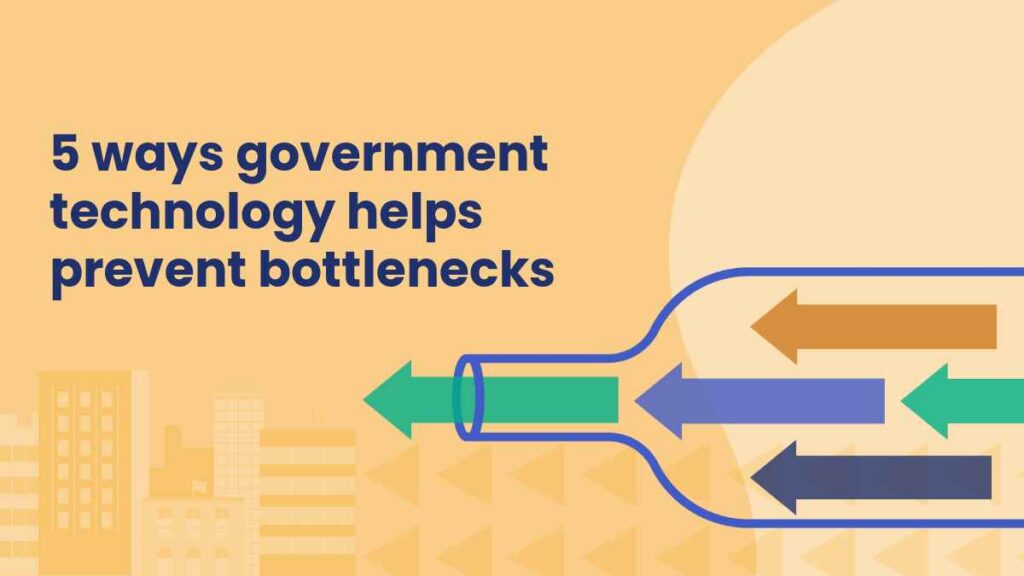5 key trends that will demand your attention in 2024

PayIt employees will be sharing their insights in this series written by our teammates — showcasing the talent, expertise, and positive attitude that each PayIt employee brings to the company. This post contribution is from Austin Wakat, PayIt’s Head of State and Local Products.
As 2023 comes to a close and we look forward to the new year, the demand on government agencies (and their technology teams) to stay ahead of the curve and navigate an ever-evolving landscape is higher than ever.
Here are five key government technology trends that will demand your attention in 2024:
1. Do more with less by increasing digital adoption
Agency leaders are consistently asked to do more with less. But in the face of budget constraints and staffing challenges, increased adoption of digital government services can help increase internal efficiency for staff and satisfaction for residents.
As we saw in early 2023, there’s still plenty of work to be done here. Demand from residents for more digital tools and services continues to grow, and agencies have the potential to deliver a better experience to residents and give internal staff the tools that allow them to focus on the hard tasks instead of the tedium.
2. Proactive engagement drives a better resident experience
It’s not uncommon for residents to perceive their state and local government agencies negatively simply because they lack awareness of available services.
Proactive engagement with residents to drive awareness and enablement of these offerings is key to their success. As agencies explore new digital tools and increase adoption, communicating with residents across a variety of mediums (text alerts, newsletters, social media, etc.) will drive higher engagement and satisfaction from residents.
(At PayIt, we’ve seen the benefits that a strong multi-channel communication strategy can have for the agencies we serve and their residents.)
3. Cyber threats are here to stay, so let’s be prepared
It’s no secret for today’s technology leaders that cyber threats have increased in volume and sophistication over the last several years as more agencies move services online. Continuing to enforce strict security policies and up-to-date training on the types of attacks staff and residents might expect is critical to ensuring the agency and individuals aren’t the victims in the next case of cyber crime.
For vendors, taking these threats seriously and maintaining the highest security and compliance standards will ensure that the agency has a partner in the fight against these threats.
4. Inclusive and accessible digital services
Government agencies are responsible for serving all residents, regardless of their background, abilities, or current situation. When it comes to digital services, there’s a real risk of marginalized groups not being able to take advantage of those services without forethought from the agency and its partners. As more states adopt legislation to require inclusive and accessible digital tools, it’s not just the right thing to do but the required thing to do.
This work includes maintaining the highest web accessibility standards, adopting a human-centered design approach, and digital features that assist unbanked and underbanked folks.
5. AI? Let’s embrace a little pragmatism
The wave of investment and hype surrounding artificial intelligence (AI) and its impact on the technology landscape has reached generational proportions in 2023, but many questions remain on how best to use these powerful tools to add value to digital services or improve internal efficiency.
Agencies must clearly understand the scope of the models they intend to leverage, what data will be used to feed those models (including ethical and legal boundaries with resident data), and a clear set of objectives or outcomes they hope to gain by leveraging this technology.
So, for now, a certain level of pragmatism is required here. In addition, answering the questions above with transparency and openness will ensure that the public maintains a needed level of trust in their government agencies as they embark on this new technological frontier.
Make 2024 a transformative year
The technology that can improve internal operations and resident satisfaction will continue to evolve, making it essential that government agencies use it wisely (and communicate changes often and openly to residents). Harnessing digital platforms proactively and with transparency will help drive adoption and foster resident trust.
The agencies that embrace these trends will not only successfully navigate the complexities of the digital era but will also emerge as leaders in delivering the crucial services they provide to the public on a daily basis.
Looking for more content?
Get articles and insights from our monthly newsletter.




